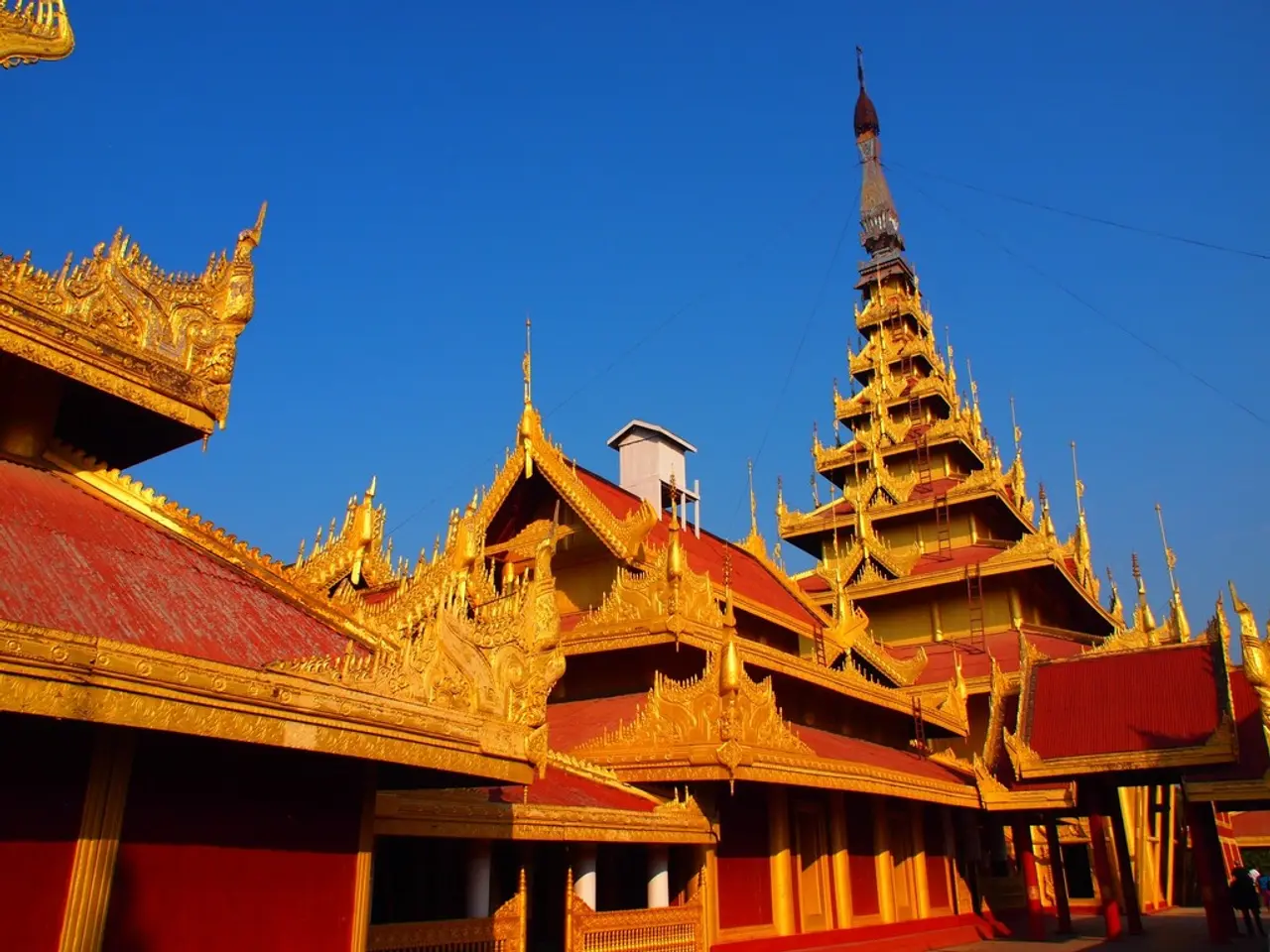Malaysian Minister to Request Clarification on Election Outcomes from Myanmar Officials
Myanmar's military junta has planned an election for December 2025 and January 2026, a move widely criticised by ASEAN and the international community as an illegitimate and sham electoral exercise. The election is seen as a deliberate attempt by the junta to fabricate legitimacy and perpetuate military tyranny, rather than restore democracy.
The military junta lacks both legal and political legitimacy, as well as effective territorial and administrative control, due to the presence of democratic resistance groups, including the National Unity Government (NUG) and ethnic federal units, controlling significant areas of Myanmar. ASEAN, led by Chair Malaysia in 2025, has taken a strong and clear position condemning the junta's election plans.
The election is viewed as a political theater and rebranding exercise that does not reflect genuine democratic reform but rather seeks to entrench military domination and avoid accountability. ASEAN has barred Myanmar's military junta from key meetings and emphasised that immediate priorities should be ceasefire and dialogue before any elections can be considered legitimate.
The junta's dissolution of the State Administration Council (SAC) and formation of a new governing body labeled as the State Suppression and Protection Council (SSPC) is seen as a cosmetic restructuring, not a meaningful political transition. To suppress dissent around the election, the junta has enacted a harsh law imposing severe penalties—including death—for those disrupting the electoral process.
The planned election is scheduled to be discussed with ASEAN leaders in October. The election is expected to occur after the lifting of the nationwide state of emergency and the nominal transfer of power to a civilian-led government. Voting is scheduled to take place in December and January. Opposition groups have either been barred from running or refused to take part in the election.
Myanmar's generals have not been allowed to attend ASEAN meetings since 2022 for failing to honor the ASEAN "five-point consensus" peace plan. The country has been barred from attending the bloc's key meetings since then. Myanmar has been in chaos since a military coup against an elected civilian government in 2021, resulting in the country being plunged into civil war.
The upcoming election is expected to be dominated by proxies of the military. The discussion about the election is to take place within the Association of Southeast Asian Nations (ASEAN). Malaysian Foreign Minister Mohamad Hasan will lead a delegation to Myanmar next month to seek details about the planned election. He will be accompanied by his counterparts from Thailand, the Philippines, and Indonesia on the trip to Myanmar on Sept 19.
The junta chief remains in charge of the country in his role as acting president. Western governments expect the election to be a sham aimed at entrenching the generals' power. Myanmar state media has reported that martial law and a state of emergency will be imposed in more than 60 townships across nine regions and states.
The Malaysian Foreign Minister wants to obtain a clearer picture of the elections to bring to the attention of ASEAN leaders. This firmer stance from ASEAN reflects concerns over ongoing violence and lack of dialogue in Myanmar. ASEAN's position is a significant departure from its earlier hesitancy, signalling a firmer stance that reflects concerns over ongoing violence and lack of dialogue.
The discussion about the upcoming election in Myanmar, scheduled for December 2025 and January 2026, is taking place within the Association of Southeast Asian Nations (ASEAN), with concerns that it's nothing more than a political theater and rebranding exercise aimed at entrenching military domination and avoiding accountability. ASEAN, led by Chair Malaysia in 2025, has taken a firm stance against the election, emphasizing that immediate priorities should be ceasefire and dialogue before any elections can be considered legitimate.
ASEAN's position on Myanmar's election has significantly changed from its earlier hesitancy, reflecting concerns over ongoing violence, lack of dialogue, and the election's involvement in regional politics and conflicts. This firmer stance from ASEAN, represented by the Malaysian Foreign Minister, serves to bring attention to the situation within Myanmar and raises questions about the legitimacy of the election, in a context where the military junta lacks both political and legal legitimacy.







